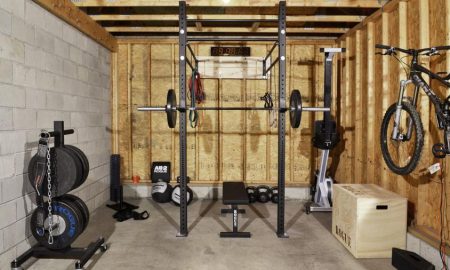
Take your fitness routine to the next level. Don’t just work hard; work smart.
If you’re in good health, take the necessary steps to make sure you stay that way. If you’re recovering from an illness or an operation, you may need to take it slow at first. But slow and steady wins the race.
Before doing heavy exercises, it’s important to consult a doctor so that you know which workouts are best for you. If seeing a doctor and getting a check-up is stressful for you, it could be a good idea to read up on what a medical check-up consists of and read up on some of the equipment used, which you can do on this site from Heartland Medical.
1 – Stay Active on a Daily Basis
The first fitness tip that you should consider is exercising on a daily basis. If you are not regularly active, your body will not function at its maximum capacity.
However, if you are active on a daily basis, your body will be able to adapt to the new challenges that you face. Your body will adapt to the conditions you put it through. If you become lazy, your body will become lazy, too. And it won’t put up much of an effort when you need it to fight off a disease, germ or infection. And it won’t be ready to give you the strength and energy when you need it to.
However, if you exercise regularly, your body will adapt and it will perform at its best, always.
2 – Keep Track of Your Food Intake Per Day
If you are not doing so already, you should start keeping track of what and how much you eat as soon as possible. You see, when it comes to exercising and staying fit and healthy, a nutritious diet is extremely important. Therefore, if you are interested in achieving the best results from your workouts, you need to make sure that you consume the right foods.
When you keep a written record of the foods you consume, you will find that you are less likely to overeat or to eat foods that you know do nothing positive for you. Because your dietary crimes will be put on your permanent record, you will find yourself being extra vigilant in what you put into your body. Hold yourself accountable; write down what and how much you eat.
Additionally, having a written record will give you an organized visual display of what foods or nutrients you may be lacking. A written record will help you plan your shopping and your meals preparation better.
3 – Get Enough Proper Sleep
If you are not sleeping enough at night, then there is no way that your body will function properly during the day. It’s important that you get the required number of hours of sleep a night, but also that the sleep you get is ‘proper’ sleep, meaning that you do not wake every few hours and never fall into a long and deep sleep that will allow you to fully recuperate.
According to experts, adults need between 7 and 9 hours of sleep every night if they want to achieve optimal health. The precise amount will depend on your age and body mass as well as other factors. Your physician will be able to tell you exactly how much sleep you need to get, and the value of sticking to this amount should not be underestimated.
For the same reasons that it’s a good idea to keep track of what you eat, you should probably keep track of how much sleep you get a night, too. This way, you can track your progress and give yourself goals to reach and maintain.
4 – Keep a Fitness Journal
There are various reasons why you should keep a fitness journal. First of all, if you keep track of your workouts per day, then it will be easier for you to set realistic goals for yourself. Additionally, if you keep a fitness journal, then it will be easier for you to stay motivated and focused on your overall health goals. As a result, there is no doubt that this will help you achieve much better results.
Your fitness journal can include what kind of workouts you do, how long you do them for, and possibly some notes about easy or difficult they were for you to do. You can also use this journal to keep track of your diet and the amount of sleep you’re getting. Having all that information in the same place will help you to get a clear idea of how you are progressing overall, especially since those 3 factors – exercise, food, and sleep – are related.
5 – Don’t Give Up
The fifth and final great fitness tip that we recommend adding to your daily routine is not to give up. You may have a down day or a down week here and there, but that shouldn’t keep you from striving to meet your long-term goals. Think of it as a marathon, not a sprint.
Cut yourself some slack, too. No one is perfect. And your progress won’t be either. Your path toward your long-term goals won’t necessarily be a linear one. It might resemble more of a jagged rock – but one that leads upward, toward the summit of your fitness mountain.
Takeaway
If you don’t see results after a few weeks or even months of consistent training, then that doesn’t mean that there is something wrong with you. It just means that you need to adjust your workout routine in order to better suit your goals. But maintaining a consistent workout routine is a great accomplishment in and of itself. Don’t give up; and congratulate yourself for your determination.

















Follow Us